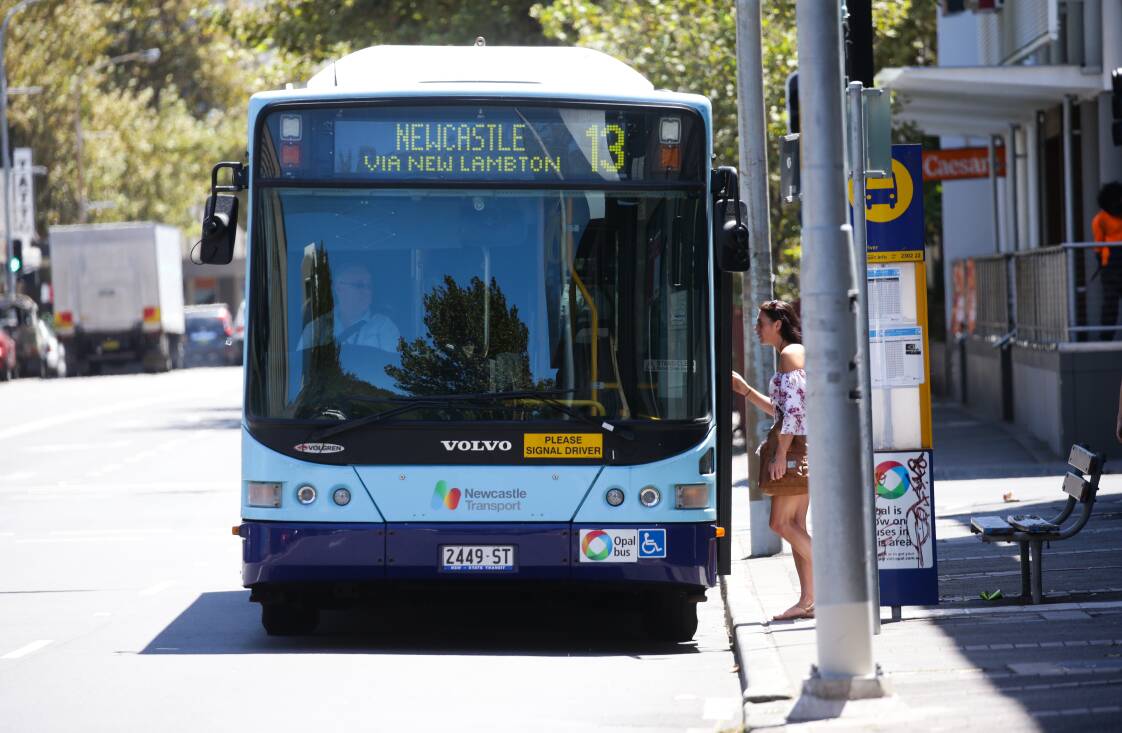
A NSW upper house inquiry has urged the government to consider reversing the "disastrous" privatisation of Newcastle's bus network after finding it has led to inferior services, higher costs for passengers and worse pay and conditions for drivers.
The inquiry committee chair, Greens MP Abigail Boyd, said in her foreword to the report that the government's objective to cut costs and private operators' desire to maximise profits had come at the expense of effective and reliable services.
"The community anger and frustration at the degradation of services is palpable," Ms Boyd wrote.
"It is clear to us the NSW government's decision to privatise these bus services has been nothing short of a disaster."
The report recommended the government consider returning bus operations in Newcastle and four Sydney regions to public control.
The inquiry found changes to bus services in Sydney and Newcastle, including stop locations, frequency of services and route changes, had at times occurred without enough consultation.
"The evidence before us demonstrates that communities across Sydney, and up to the Newcastle area, are experiencing common frustrations: fewer bus stops and buses which operate less frequently with reduced coverage," the inquiry report says.
"These cuts have happened not only since privatisation but in the lead-up to the transfer of services."
The three Coalition MPs on the six-person committee published a dissenting statement describing the Greens and Labor-controlled inquiry report as a "political document" designed to "attack the government" before the March state election.
Liberals Chris Rath and Shayne Mallard and the Nationals' Wes Fang described moves to "rip up" contracts as "reckless", "socialism" and a risk to the government's "reputational capital".
They also said the bus networks had not been privatised but "franchised" and that Transport for NSW retained ownership of buses and depots and control over how services were designed.
"There is absolutely no causal link between the timing of route and service rationalisation and the 'regions in question being privatised'," the three MPs wrote.
Opposition transport spokeswoman Jo Haylen told AAP that Labor would honour contracts if it formed government but would establish a taskforce to assess the inquiry's findings.
Keolis Downer took over Newcastle's buses and ferries in 2017 on a 10-year contract and implemented a hub-and-spoke network which forced some passengers to change buses more often.
Those and other changes prompted an outcry from customers, unions and local Labor MPs.
MPs Tim Crakanthorp, Jodie Harrison and Yasmin Catley told the inquiry they had been "inundated" with complaints of late buses and missed connections.
"While I am not suggesting that all of the changes to the network brought about by the private provider were negative, the experience of the Charlestown electorate indicates that the reality of a private provider being given control of a service like public transport creates a perverse incentive to improve services by sacrificing those needed by a smaller but more vulnerable cohort," Ms Harrison said.
The committee heard that direct routes to Charlestown, Newcastle's CBD and Morisset train station were removed and services to key destinations such as Charlestown, Newcastle and the John Hunter Hospital took longer and required more changes between services.
The inquiry recommended future bus contracts include targets connected to the level and quality of services rather than just patronage and on-time running.
The report noted that Transport for NSW planned and approved all bus route changes, but State Transit Authority chief Daniela Fontana told the inquiry that it was "very common for private operators to put forward proposals and changes to Transport for NSW".
Keolis' submission to the inquiry said its network, launched in early 2018, had introduced 1000 new services a week "with buses covering more ground across increased operating hours".
Industry group BusNSW told the inquiry that there was no correlation between privatisation and cutting services.
Long-time Central Coast operator Red Bus Services said in its submission that private operators did not need to cut services to stay competitive "as the routes are determined by Transport for NSW and the contract price is calculated on kilometres and hours".
"There is no saving to the operator to change the timetable," the company said.
"The savings to an operator are by reducing the layover, repositioning, back-to-depot, sign-on and finishing times, which we call dead running.
"Creating an efficient network is how an operator makes money, not the timetable."
The inquiry found the recent bus privatisations had not resulted in "real" market competition because such competition occurred only during the tender phase, after which the market for a particular area was monopolised, albeit regulated.
WHAT DO YOU THINK? We've made it a whole lot easier for you to have your say. Our new comment platform requires only one log-in to access articles and to join the discussion on the Newcastle Herald website. Find out how to register so you can enjoy civil, friendly and engaging discussions. Sign up for a subscription here.







